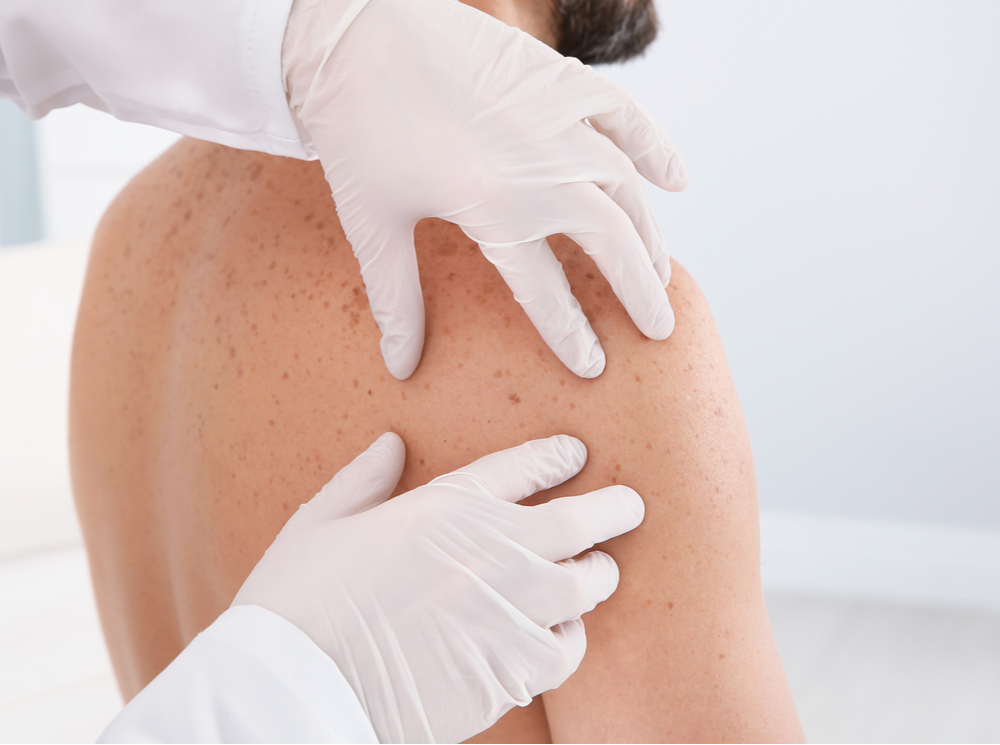NHSX’s Digital playbooks ‘have been developed to support clinical teams to reimagine and redesign care pathways by showcasing tried and tested technologies to solve real-world problems.’ They highlight challenges faced by people working in different NHS organisations and share solutions and best practices.
Our teledermatology project in Leeds features in the NHSX Dermatology Digital playbook. Read the full case study on the NHSX website or we have replicated it below:
A teledermatology pilot to improve cancer care in Leeds
Leeds Teaching Hospitals NHS Trust is one of the largest and busiest acute hospital trusts in the UK, offering a range of both general and specialist hospital services for people from the city of Leeds, Yorkshire and the Humber and beyond. The Trust treats around 1.5 million patients a year.
Situation
A national shortage of consultant dermatologists and an increase in the number of skin cancer referrals from GPs. Walayat Hussain, consultant dermatologist at Leeds Teaching Hospitals Trust, looked at the data about patients referred by GPs and subsequently discharged without any clinical intervention: this amounted to about one-third of the referrals. This led to the thought that there should be a way of making a decision without the patient needing to visit hospital, with a possible solution offered by GPs sending images of suspicious lesions to the consultants.
Aspiration
The Leeds Cancer Programme to pilot a new pathway for suspected skin cancer cases to speed up diagnosis of skin lesions and reduce demand on the two-week wait pathway.
Solution and impact
A pilot study was carried out to test the hypothesis. GPs were provided with specialist magnifying devices which enabled them to take images of the lesions using a smartphone or tablet. They sent images to a consultant dermatologist (identified only by the NHS number) but also referred the patient through the normal pathway. Walayat compared his diagnosis based on the image with the outcome of the face-to-face consultation: in every case, the diagnosis was the same. The evidence led to national cancer transformation funding provided via the West Yorkshire and Harrogate Cancer Alliance. A steering group with representatives of every organisation on the pathway was established to progress and oversee the project.
All GP practices in Leeds are now using the imaging system, which works via the Consultant Connect App with which they were already familiar. Supporting material and videos were used to explain the system to GPs and to patients. The imaging process that needs to be done by the GP takes just 30 seconds, so does not adversely affect GP appointment times. After getting patient consent, the GP takes three images to send to the hospital.
The teledermatology scheme in Leeds enables GPs to receive speedier expert input without the need for patients to attend unnecessary clinic appointments.
GPs use dermatoscopes to take photos using the PhotoSAF (Consultant Connect App) of the concerning lesion, which the images and notes are saved to a secure cloud. The photos are then securely transmitted to a consultant dermatologist. Within 48 hours, the hospital consultant will have reported back – either reassuring that the lesion is benign and so no secondary care appointment is needed or inviting the patient in for a face-to-face consultation.
Functionality
- Photos of patients’ skin are taken using the PhotoSAF feature within the Consultant Connect App
- Photos are then included on the eRS two-week wait referral
- Capabilities
- Telephone and photo advice and guidance
- Images and notes are stored automatically in an IG-secure and GDPR-compliant cloud and not on the phone
- Images and a pdf summary are sent to the clinician’s NHS email address and can be downloaded to a computer
- Save images to patient records or send to other clinicians via email or local referral systems
Scope
- Securely store and forward photos from patients directly to NHS consultants for photo advice and guidance
- Clinicians can take photos with the app during face-to-face consultations and share them
Key figures/quotes
- From project launch on 1 June 2018 to 30 September 2019, the outcomes have been positive, and the service continues to evolve with further refinement being made
- Of the 12,294 skin referrals received by LTHT from across the city of Leeds during this period, 8,261 (67%) patients have been clinically assessed using teledermatology. This is now consistent month on month. Work is ongoing with primary care to further enhance this
- All patient images are assessed by a consultant dermatologist within 48 hours of referral
- Consultant time for this first intervention is decreased through clinical assessment of images as this intervention takes between 30 seconds to 2 minutes (av. 75 seconds) as opposed to a face-to-face clinic appointment of 12 minutes
- There is an increasing proportion of patients discharged following image clinical assessment. The confidence of the team is increasing as consultants become more experienced. At the outset, the rate of discharge back to the GP on image assessment was 9.5%, which has increased to 33% in September 2019, meeting the original business case assumption
The Consultant Connect project in Leeds was also featured in an HSJ article.




